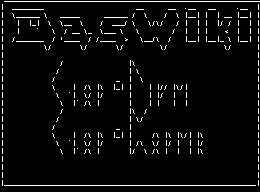Pages (Latest 10 updated) :
Menu (Edit):
- Das Wiki
- zsh.md
- zoneminder.md
- yubikey.md
- yasnippet.md
- xprofile.md
- xmonad.md
- wpa_supplicant.md
- wp3.md
- windows.md
Menu (Edit):
Link List (Edit):
Contents:
# ____ _ _ ____ _ _ _
# | _ \ _ _| |_| |__ ___ _ __ | __ ) _ _(_) | __| |
# | |_) | | | | __| '_ \ / _ \| '_ \ | _ \| | | | | |/ _` |
# | __/| |_| | |_| | | | (_) | | | | | |_) | |_| | | | (_| |
# |_| \__, |\__|_| |_|\___/|_| |_| |____/ \__,_|_|_|\__,_|
# |___/
#
Building packages in python
The deprecation of ezinstall
Before pip grew in popularity one would use a set of tools called “ezinstall”, which used a
setup.py file to collect all the required dependencies, and prepare the package for use. This method has
finally been deprecated, and is not longer available for use. So, below we shall examine the alternatives to
ezinstall.
Pyinstaller
Pyinstaller is Google’s solution to build binary packages for python. It takes a setup.py file and a *.whl
file, and compiles the source code into a binary file.
 Anoduck's Das Wiki
Anoduck's Das Wiki